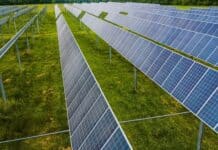In today’s competitive business environment, energy is a critical resource that can significantly impact a company’s bottom line and environmental footprint. With a multitude of energy options available in the UK, it can be challenging for businesses to navigate the complex landscape and make informed decisions.
This comprehensive blog post will delve into the various types of business energy available in the region, comparing their pros and cons, and providing tips and advice on how businesses can optimize their energy usage, costs, and environmental impact. So Read More to get all the insight you need to make informed energy decisions for your business.
Introduction
The UK business energy market offers a diverse array of energy options, each with its own set of advantages and disadvantages. As businesses strive to minimize costs, reduce their environmental impact, and ensure a reliable energy supply, it is vital to understand the available choices and make well-informed decisions. This blog post aims to provide a comprehensive overview of the different types of energy options available for businesses in the UK, helping you make the right choice for your organization.
Types of Business Energy in the UK
There are several types of business energy available in the UK, including solar energy, natural gas, wind energy, and electricity.
Solar Energy
Solar energy is becoming increasingly popular among businesses in the UK, thanks to its abundance and low cost. These power systems use photovoltaic cells to convert light from the sun into electricity, providing a clean, renewable source of energy for businesses. Solar panels require little maintenance and can last up to 25 years or more with proper care. Additionally, businesses can benefit from government incentives, such as the Feed-in Tariff (FIT) scheme and Renewable Heat Incentive (RHI), when they install solar energy systems.
Natural Gas
Natural gas is widely used by both residential and commercial customers in the UK. This type of energy is relatively inexpensive and efficient, making it an attractive choice for businesses. Natural gas is used to power vehicles and generate electricity, as well as heat homes and commercial buildings. However, natural gas can be dangerous if not handled properly, and it also contributes to air pollution and climate change.
Wind Energy
This renewable energy source has become more accessible for businesses as technology has advanced and costs have decreased. Additionally, businesses can benefit from government incentives when installing wind turbines.
Electricity
Electricity is an essential energy source for most businesses, powering everything from lighting and equipment to transportation and communication. In the UK, electricity can be generated from various sources, including natural gas, nuclear power, and renewables such as wind and solar energy.
Pros and Cons of Each Energy Type
Each energy type has its own set of advantages and disadvantages, which businesses should consider when selecting the best option for their needs:
Solar Energy
Pros:
- Environmentally friendly and renewable
- Potential long-term cost savings due to decreasing solar panel prices
- Can be installed on-site, giving businesses greater control over their energy production
Cons:
- Intermittent energy generation based on sunlight availability
- The high initial investment for installation
- Requires suitable rooftop or land space
Natural Gas
Pros:
- Reliable and widely available
- Lower greenhouse gas emissions compared to other fossil fuels
- Can be used for multiple purposes, such as heating and electricity generation
Cons:
- Fluctuating prices due to market conditions
- A non-renewable and finite resource
- Environmental concerns associated with extraction and transportation
Wind Energy
Pros:
- Environmentally friendly and renewable
- Potential long-term cost savings as technology advances and costs decline
- Can be installed on-site or purchased through power purchase agreements (PPAs)
Cons:
- Intermittent energy generation based on wind availability
- The high initial investment for installation
- Potential noise and aesthetic concerns for nearby communities
Electricity
Pros:
- Essential for most business operations
- Can be generated from various sources, including renewables
- Wide range of providers and tariffs to choose from
Cons:
- Costs can vary depending on the source and provider
- Potential environmental impact of electricity generation, especially from fossil fuels
- Dependence on the stability of the grid for reliability
Providers and Service Packages
When selecting an energy provider, businesses should consider the advantages and disadvantages of different service packages, such as fixed vs variable tariffs, payment and metering options, and energy management.
Fixed vs Variable Tariffs
Fixed tariffs offer a set price per unit of energy for a specified period, providing businesses with budget certainty and protection from price fluctuations. Variable tariffs, on the other hand, allow businesses to take advantage of potential price drops but also expose them to the risk of price increases.
Payment and Metering Options
Energy providers may offer various payment options, such as direct debit, pay-as-you-go, or invoice-based payments. Additionally, businesses can choose between standard meters, which require manual readings, and smart meters, which provide real-time data and enable more accurate billing.
Energy Management
Some providers offer energy management services, helping businesses optimize their energy usage, identify inefficiencies, and implement cost-saving measures. These services can be particularly valuable for businesses with high energy consumption or complex energy needs.
Tips and Advice for Optimizing Energy Usage
To make the most of their energy usage, businesses should consider the following tips and advice:
- Regularly review and compare energy providers and tariffs to ensure they are getting the best deal for their needs
- Invest in energy-efficient equipment and lighting to reduce energy consumption
- Implement energy management practices, such as monitoring usage, identifying inefficiencies, and setting reduction targets
- Encourage employees to adopt energy-saving behaviors, such as turning off equipment when not in use and reducing heating or cooling levels
- Explore opportunities to generate renewable energy on-site or purchase green energy from providers
By taking these steps, businesses can optimize their energy usage, lower costs, and reduce their environmental footprint.
Conclusion
Navigating the UK business energy landscape can be a complex task, but understanding the various types of energy options available and their pros and cons is essential for making informed decisions. By considering factors such as cost, reliability, and environmental impact, businesses can select the right energy source and provider for their needs, ultimately optimizing their energy usage and contributing to a more sustainable future.
Don’t wait – start exploring your energy options today and unlock the benefits of reliable, low-cost, and environmentally friendly energy sources for your business.





